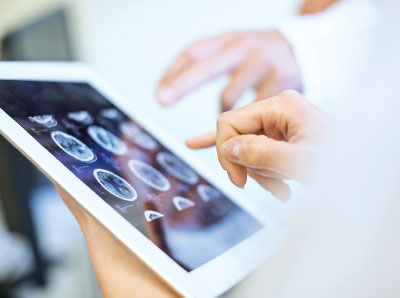Get Up to Speed on Use of Technology in Psychiatric Care
Abstract
Psychiatrists need to become competent around the professional, clinical, legal, cultural, and safety considerations demanded by new modes of clinical care through technology.

As COVID-19 has and continues to drive so much care online and into digital formats, psychiatrists have had to quickly adapt to telehealth, smartphone apps, and other technologies. But now as it becomes possible to return to in-person care, psychiatrists have to decide what the future of the field will be and the next chapter of innovation in psychiatry.
The Annual Meeting Technology Track is designed to offer psychiatrists a full overview of the digital mental health space to enable better use of digital tools today, the latest intelligence on what the future of digital psychiatry looks like, and the right information to make sure technology helps deliver the best care possible. We also want to explore how technology can be used to ensure care is more inclusive and addresses the social determinants of mental health, and we will have numerous hands-on examples and models of how to make that possible.
To accomplish this, we have assembled four sessions featuring many APA leaders in technology and telehealth. Topics include the following:
How to build a practice in the digital era and ways that technology can help you create sustainable models of care. This means also understanding the legal, financial, ethical, and clinical risks and knowing how to avoid common pitfalls.
How to make electronic medical records, apps, and wearables fit into your already busy clinical workflow.
How to achieve work-life balance and avoid burnout regarding technology use, and how to maximize the impact of technology for your own well-being.
An evidence-based perspective on mental health apps, CBT programs, chatbots, VR/AR and more. The goal is not to promote any one technology but to provide you with the actual data to make an informed decision.
How to ensure digital inclusion and make sure your approach does not leave out any patients.
What tools you can use to evaluate any health technology, even if the evidence is still too new, and make sure you select the best tools for use with your patients.
The fifth session in the track will cover apps and innovation in the support of psychiatric practice. The COVID-19 pandemic rapidly accelerated the adoption and implementation of many technologies in the practice of psychiatry. Overnight, in-person visits except for emergencies were prohibited, yet technologically ready and savvy organizations and psychiatrists were able to restore access with emergency adoption of videoconferencing technologies. Additionally, adjunctive services such as psychiatric applications on the smartphone were able to provide psychotherapy and medication management whether via secure messaging with a psychiatrist or artificial intelligence–driven chatbots to provide therapy. Social media and online professional networks helped psychiatrists connect their patients to available resources as well as facilitated wellness and decreased their risk for burnout. Speakers will review current best practices as well as future developments such as digital therapeutics and predictive analytics in future psychiatric practice. ■
Saturday, May 21
8 a.m.-9:30 a.m.
Digital Psychiatry, Part 1: Health Equity and Digital Divide in COVID Era
10:30 a.m.-Noon
Digital Psychiatry, Part 2: Work-Life Integration in Virtual World During Pandemic: Patient and Providers
1:30 p.m.-3 p.m.
Digital Psychiatry, Part 3: Integrating Patient Monitoring in Clinics
4 p.m.-5:30 p.m.
Digital Psychiatry, Part 4: ABCs: Apps, Bots, and Clinical Interventions Offered by Technology
Tuesday, May 24
8 a.m.-9:30 a.m.
Apps and Innovations to Support the Practice of Psychiatry: Current and Future Developments




